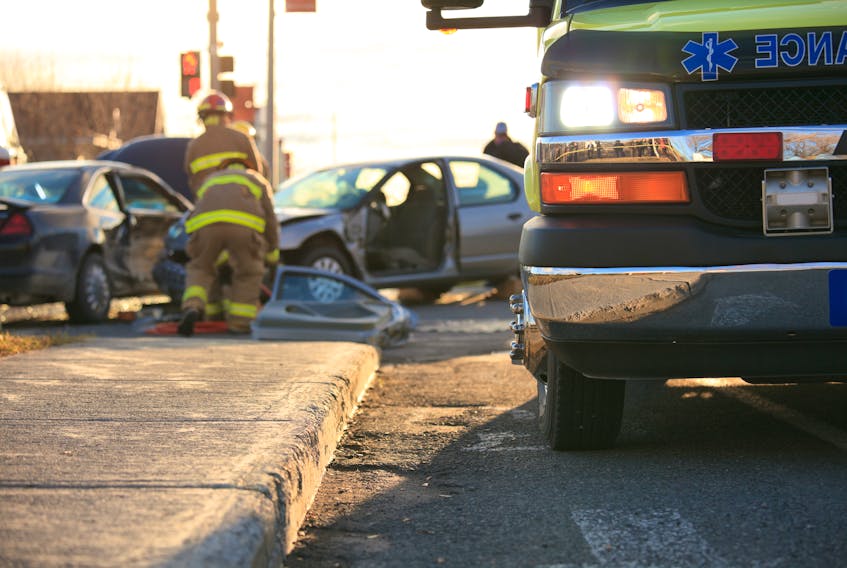The victims’ rights at stake in the current Public Utilities Board auto insurance review, like so many other issues, doesn’t really hit home to most people until they feel it personally.
That is the difficulty with telling people they are about to lose something that they don’t even know they need. All you have to do is ask a person who has been injured by a drunk or reckless driver. Ask a pedestrian who was knocked down at a crosswalk. Please ask a parent whose child was in the car when a driver that was texting hits them from behind, wiping out that child’s summer holiday and sending them to physio instead of the soccer pitch.
The injuries inflicted by reckless, distracted and drunk drivers can often be life-altering. The insurance companies like to call them “minor.” But daily we see people with so-called “minor” injuries who cannot work, lift their babies, walk up a flight of stairs or enjoy simple, everyday tasks. Insurance companies want to cap these “minor” injuries in order to save money, not because it will lower insurance rates. The vice-president of Intact Insurance, Natalie Higgins, has already said publicly that a cap will not lower rates (April 13, 2018). The Insurance Bureau of Canada has also confirmed that a cap will not bring rates down.
The auto insurance industry wants a cap on compensation for vehicle-related injuries because they say claims costs are up, and they use the cost of a bumper as an example, not bodily injuries. The truth is premiums for at-fault third party liability coverage have been stable in this province for many years. Further, the General Insurance Statistical Agency reports that automobile claims frequency rates are at a 20-year low, and the RNC reports accident rates are declining overall in N.L.
The injuries inflicted by reckless, distracted and drunk drivers can often be life-altering. The insurance companies like to call them “minor.” But daily we see people with so-called “minor” injuries who cannot work, lift their babies, walk up a flight of stairs or enjoy simple, everyday tasks.
What the auto insurance industry doesn’t want you to know is that in 2016, insurance companies in Newfoundland and Labrador took in about $100 million more than the claims it paid out. They also don’t want you to know that the insurance industry in Canada self-reported an exorbitant investment profit of $986 million in the first three months of 2017.
So, to be clear, the auto insurance industry doesn’t need the money. They want to decide what your pain is worth when you are injured in an accident. Do we really believe that insurance companies want to pay out money to anyone? Of course not. So, without the robust process we have now of ensuring you have an opportunity to fight them for fair compensation, victims of car accidents will be offered $2,500 or a maximum of $5,000 and asked to immediately sign away their rights to all future claims on that accident. What about if in six months from now, you are worse? What about in one year from now it is determined you had much more serious problems than were known at the beginning?
You will have been forced to give up your rights for a small payment so the insurance industry can make more money, and so that they can invest more money outside of Newfoundland and Labrador.
It simply isn’t right. And frankly, if your lawyers don’t speak up on this issue, you could be the next victim who stands to lose.
Blair Rogers
Torbay
Campaign to Protect Accident Victims









